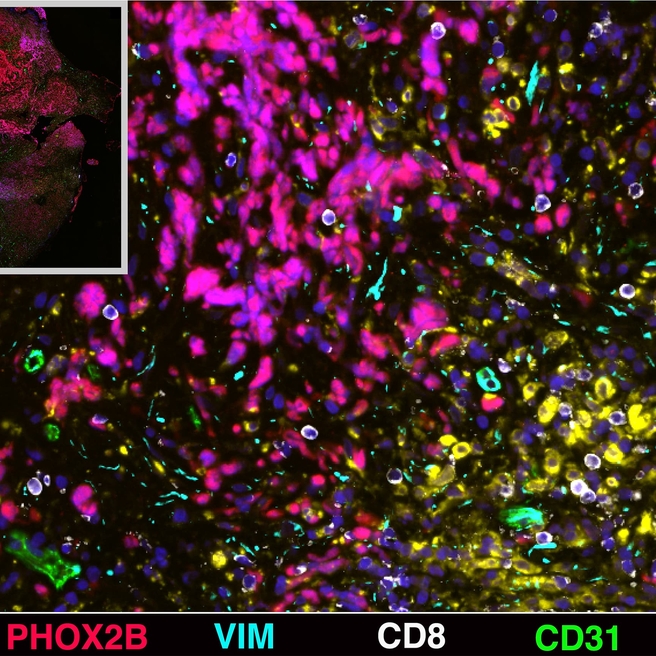
Researchers at Children’s Hospital of Philadelphia (CHOP) highlighted the success of anaplastic lymphoma kinase (ALK) inhibition therapy in treating hereditary neuroblastoma, a rare subset of a common childhood cancer. Researchers suggest that the findings, published recently in JCO Precision Oncology, could help establish a new standard of care.
Despite significant advances in the treatment of high-risk neuroblastoma, the 5-year survival rate after diagnosis remains less than 50%. However, Yael P. Mossé, MD, a senior study author and a Professor of Pediatrics in CHOP’s Cancer Center, and her team have previously found that most familial cases are linked to the ALK mutation, which can be tested for and directly targeted. In this case report, Mossé focused on a mother and daughter who were both diagnosed with neuroblastoma and carried the ALK R1275Q mutation, demonstrating how they achieved long-term remission with targeted ALK inhibitors.
“Our research marks a major advancement in precision medicine for patients predisposed to hereditary neuroblastoma,” said Mossé. “With these findings, we can offer new hope for affected families and pave the way for more personalized, less invasive treatment strategies in pediatric oncology.”
In the study, researchers demonstrated that small molecule ALK inhibitors, initially developed for sporadic neuroblastoma with non-inherited ALK mutations, could be even more effectively implemented for hereditary cases. The daughter was diagnosed with neuroblastoma at six months old and following standard chemotherapy and surgery that failed her, she responded dramatically to the ALK inhibitor, crizotinib, after her cancer recurred.
The mother, who had been asymptomatic, was diagnosed at 36 years old with bilateral adrenal tumors during a pregnancy five years later. After delivering a healthy baby, she began crizotinib, later switching to a different ALK inhibitor, alectinib, due to side effects. Following surgical removal of the tumors, the mother continued alectinib treatment and has maintained remission several years. Both the mother and daughter undergo semiannual surveillance with whole-body MRI and circulating tumor DNA (ctDNA) testing with no evidence of disease recurrence.
The authors say the report could change how hereditary neuroblastoma for patients with an ALK mutation is treated and followed. They recommend ALK inhibitors as a frontline therapy for patients with the inherited mutations, potentially reducing the need for intensive chemotherapy and surgery. They also stress the importance of lifelong monitoring, challenging current guidelines that end surveillance in childhood. Next, the researchers plan to study whether people with hereditary ALK have a lower risk of developing drug resistance than those with non-inherited mutations.
The research was supported by Alex’s Lemonade Stand Foundation, Patricia Brophy Endowed Chair in Neuroblastoma Research and National Cancer Institute (NCI) R35 CA220500.
Mossé et al. “Anaplastic Lymphoma Kinase Inhibition Therapy for Hereditary Neuroblastoma.” JCO Precis Onc. Online April 28, 2025. DOI: 10.1200/PO-24-00886.
Featured in this article
Experts
Specialties & Programs
Research

Researchers at Children’s Hospital of Philadelphia (CHOP) highlighted the success of anaplastic lymphoma kinase (ALK) inhibition therapy in treating hereditary neuroblastoma, a rare subset of a common childhood cancer. Researchers suggest that the findings, published recently in JCO Precision Oncology, could help establish a new standard of care.
Despite significant advances in the treatment of high-risk neuroblastoma, the 5-year survival rate after diagnosis remains less than 50%. However, Yael P. Mossé, MD, a senior study author and a Professor of Pediatrics in CHOP’s Cancer Center, and her team have previously found that most familial cases are linked to the ALK mutation, which can be tested for and directly targeted. In this case report, Mossé focused on a mother and daughter who were both diagnosed with neuroblastoma and carried the ALK R1275Q mutation, demonstrating how they achieved long-term remission with targeted ALK inhibitors.
“Our research marks a major advancement in precision medicine for patients predisposed to hereditary neuroblastoma,” said Mossé. “With these findings, we can offer new hope for affected families and pave the way for more personalized, less invasive treatment strategies in pediatric oncology.”
In the study, researchers demonstrated that small molecule ALK inhibitors, initially developed for sporadic neuroblastoma with non-inherited ALK mutations, could be even more effectively implemented for hereditary cases. The daughter was diagnosed with neuroblastoma at six months old and following standard chemotherapy and surgery that failed her, she responded dramatically to the ALK inhibitor, crizotinib, after her cancer recurred.
The mother, who had been asymptomatic, was diagnosed at 36 years old with bilateral adrenal tumors during a pregnancy five years later. After delivering a healthy baby, she began crizotinib, later switching to a different ALK inhibitor, alectinib, due to side effects. Following surgical removal of the tumors, the mother continued alectinib treatment and has maintained remission several years. Both the mother and daughter undergo semiannual surveillance with whole-body MRI and circulating tumor DNA (ctDNA) testing with no evidence of disease recurrence.
The authors say the report could change how hereditary neuroblastoma for patients with an ALK mutation is treated and followed. They recommend ALK inhibitors as a frontline therapy for patients with the inherited mutations, potentially reducing the need for intensive chemotherapy and surgery. They also stress the importance of lifelong monitoring, challenging current guidelines that end surveillance in childhood. Next, the researchers plan to study whether people with hereditary ALK have a lower risk of developing drug resistance than those with non-inherited mutations.
The research was supported by Alex’s Lemonade Stand Foundation, Patricia Brophy Endowed Chair in Neuroblastoma Research and National Cancer Institute (NCI) R35 CA220500.
Mossé et al. “Anaplastic Lymphoma Kinase Inhibition Therapy for Hereditary Neuroblastoma.” JCO Precis Onc. Online April 28, 2025. DOI: 10.1200/PO-24-00886.
Recommended reading
New CHOP study used innovative immunotherapy approach to treat neuroblastoma
CHOP researchers demonstrated a promising new approach in the fight against high-risk neuroblastoma, a common and potentially deadly childhood cancer that can occur within the peripheral nervous system.
CHOP Researchers Find Promising New Immunotherapy Target in Neuroblastoma and Other Cancers
CHOP researchers announced significant findings in the treatment of neuroblastoma, a cancer of the peripheral nervous system that usually occurs as a solid tumor in a child’s chest or abdomen.
CHOP Researchers Develop Cell Atlas to Uncover Significant Shifts in the Neuroblastoma Tumor Microenvironment

CHOP researchers developed a longitudinal atlas of neuroblastoma, a common and potentially deadly childhood cancer, to gain deeper understanding into precise molecular mechanisms underlying why and how certain treatments eventually become ineffective.
Contact us
Jennifer Lee
Cancer Center